Are you looking to draft a transportation service contract but unsure where to start? Navigating the complexities of service agreements can be a bit daunting, especially when you want to ensure all key details are covered. This article will guide you through creating a clear and effective letter template that outlines your transportation service needs and expectations. Join us as we explore essential components of a transportation contract and give you tips on customizing it to suit your unique requirements!

Scope of Services
A transportation service contract outlines the specific scope of services provided by the transportation company. This includes details such as the type of transportation (e.g., freight shipping, passenger transport), frequency of service (e.g., daily, weekly), and coverage area (e.g., city, state, national). The contract may specify the mode of transport (e.g., trucks, buses, ships) and any additional services like loading, unloading, and tracking. Safety protocols and compliance with relevant regulations (such as those set by the Department of Transportation in the United States) are also critical components. Pricing structures, including flat rates, mileage charges, and fuel surcharges, should be clearly defined. Lastly, the contract should detail the duration of service and conditions for termination to protect both parties involved.
Payment Terms
Payment terms in a transportation service contract are critical to establishing a clear understanding between the service provider and the client. Typically, the contract specifies agreed amounts based on mileage or hourly rates for various services, such as freight transportation, passenger conveyance, or logistics management. Payment deadlines often range from 30 to 60 days post-invoice date, depending on industry standards. Late payment penalties may apply, calculated as a percentage of the outstanding amount after the grace period expires, thereby incentivizing timely payments. Discounts for early payments, such as 2% off the total for payments made within ten days, help manage cash flow. Clear methods of payment (e.g., bank transfer, checks, or digital payments) must also be outlined to facilitate smooth transactions between parties. Invoicing procedures must be detailed, including what specific charges apply and how discrepancies in billing will be resolved.
Liability and Insurance
A transportation service contract typically includes essential clauses about liability and insurance. Liability provisions clarify the responsibility of the transportation provider, detailing obligations during transit. For example, "carrier liability shall not exceed $100,000 per incident" outlines maximum compensation owed for lost or damaged goods. Insurance requirements specify coverage types, such as general liability insurance and cargo insurance. For instance, "the service provider must maintain liability insurance of at least $1 million" ensures protection against accidents or claims. Additionally, waiver clauses may apply, indicating instances where liability may be limited or excluded, often involving specific conditions. It's crucial that both parties understand their responsibilities, ensuring compliance with legal standards and providing adequate protection during operations.
Termination Conditions
Termination conditions stipulate the specific circumstances under which either party in a transportation service contract can cease operations. In situations such as failure to fulfill payment obligations, the transporting company may invoke a clause allowing termination within 30 days of written notice. A breach of contract, such as failure to deliver goods on agreed timelines, can also lead to immediate termination, ensuring accountability. Additionally, should either party experience insolvency or bankruptcy, the contract allows for immediate nullification, protecting the interests of each entity involved. Provisions addressing unforeseen events, known as force majeure (e.g., natural disasters, strikes), can also dictate termination procedures, ensuring fairness under extraordinary circumstances. Legal frameworks in jurisdictions such as California or New York may influence these conditions, emphasizing compliance with local regulations.
Confidentiality Agreement
A confidentiality agreement is a legal document that outlines the terms under which sensitive information is shared between two parties. In the context of a transportation service contract, it ensures that details regarding the services provided, including transportation routes, pricing structures, and customer data, remain confidential. Typically, these agreements identify the parties involved, define "confidential information" (such as logistics plans, payment terms, or proprietary software used), establish the duration of confidentiality (often 2 to 5 years post-termination), and detail the consequences of breach. The inclusion of clauses on permissible disclosures (such as to employees or contractors involved in the service) and the methods of document handling (like secure storage and restricted access) is common. Additionally, specifying the jurisdiction that governs the agreement, often aligning with local transportation regulations in areas like California or New York, is crucial for legal enforcement.
Letter Template For Transportation Service Contract Samples
Letter template of transportation service agreement for local deliveries.
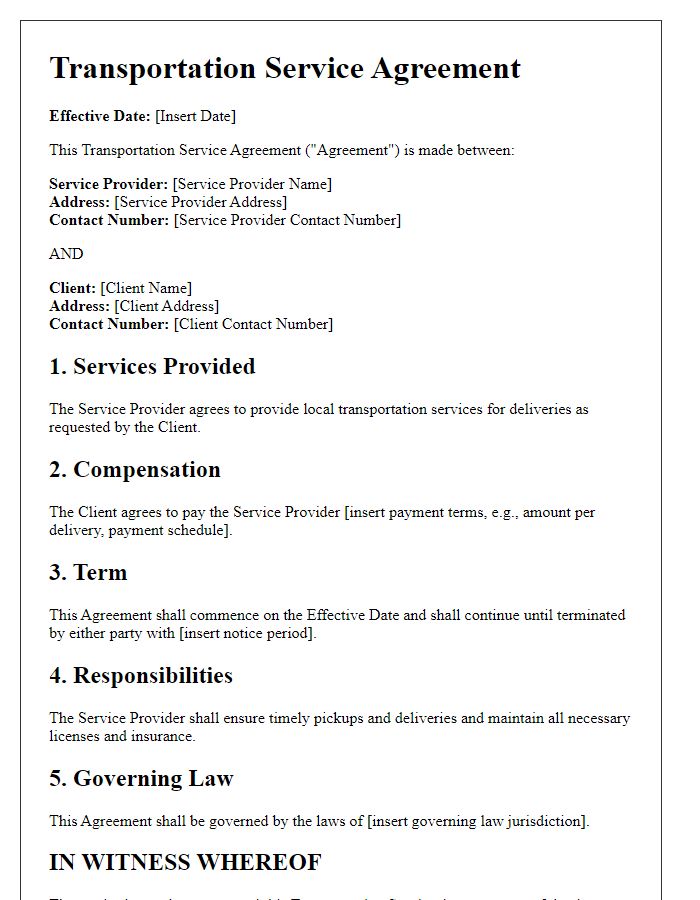
Letter template of transportation service contract for corporate logistics.
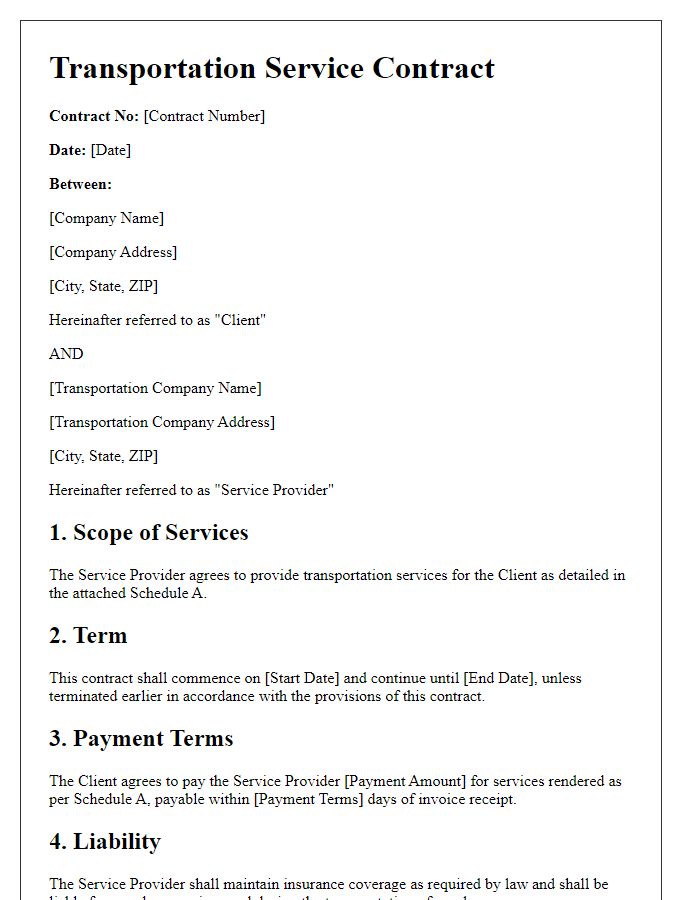
Letter template of transportation service arrangement for long-distance freight.
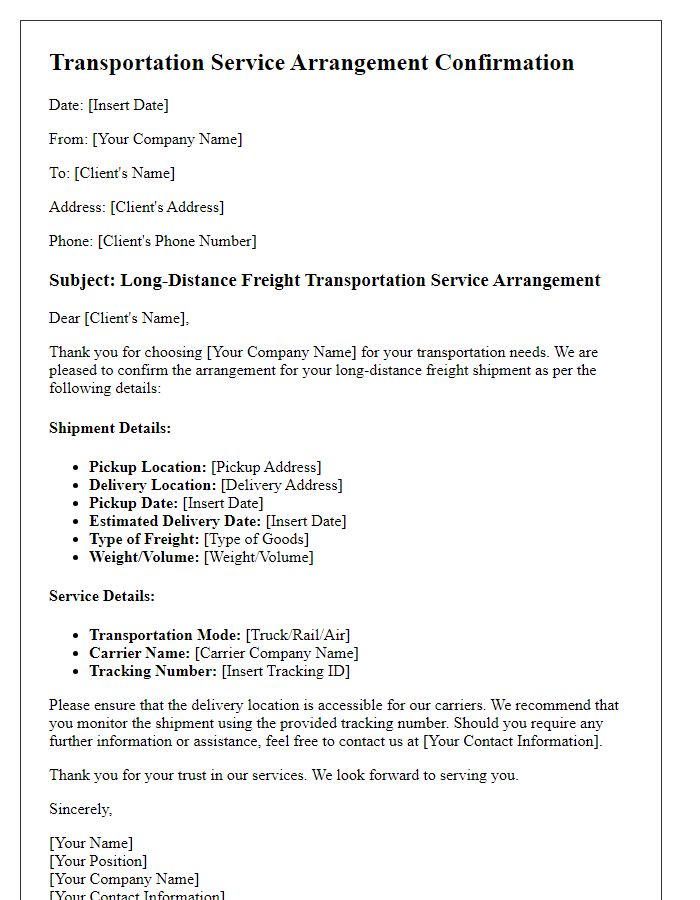
Letter template of transportation service understanding for school bus services.
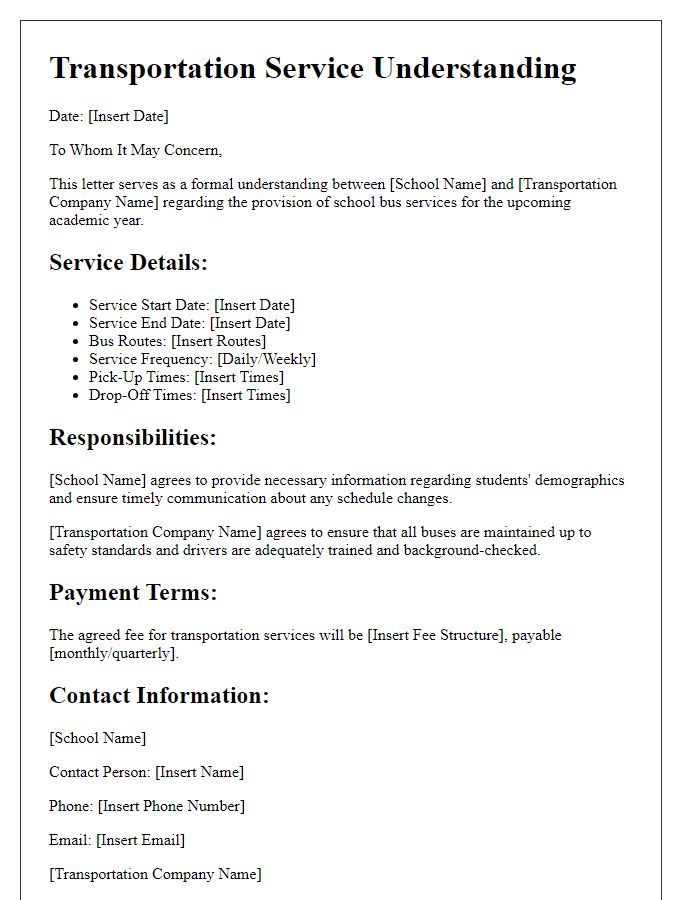
Letter template of transportation service engagement for medical transport.
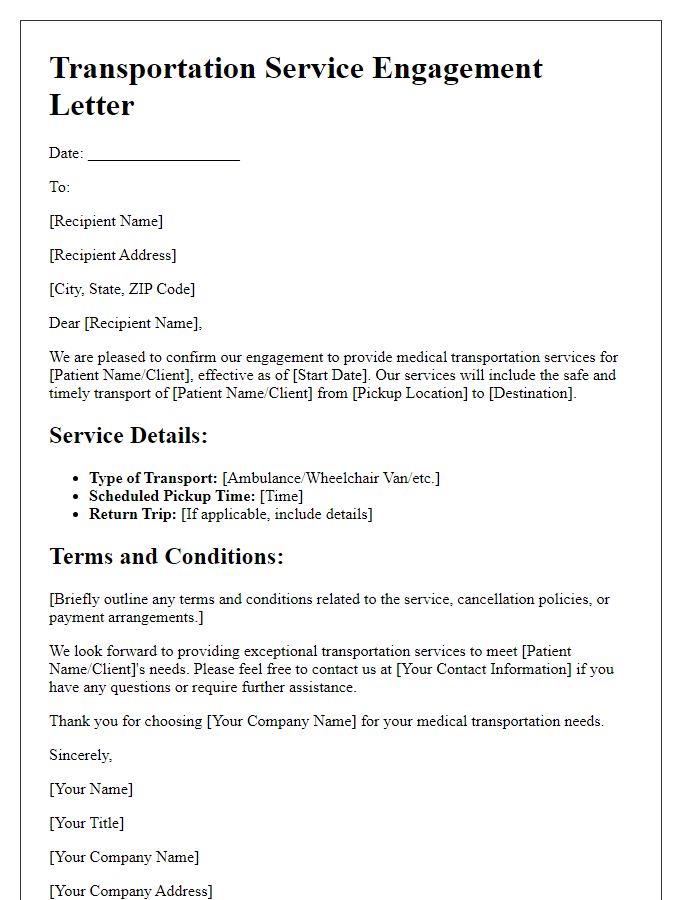
Letter template of transportation service commitment for airport transfers.
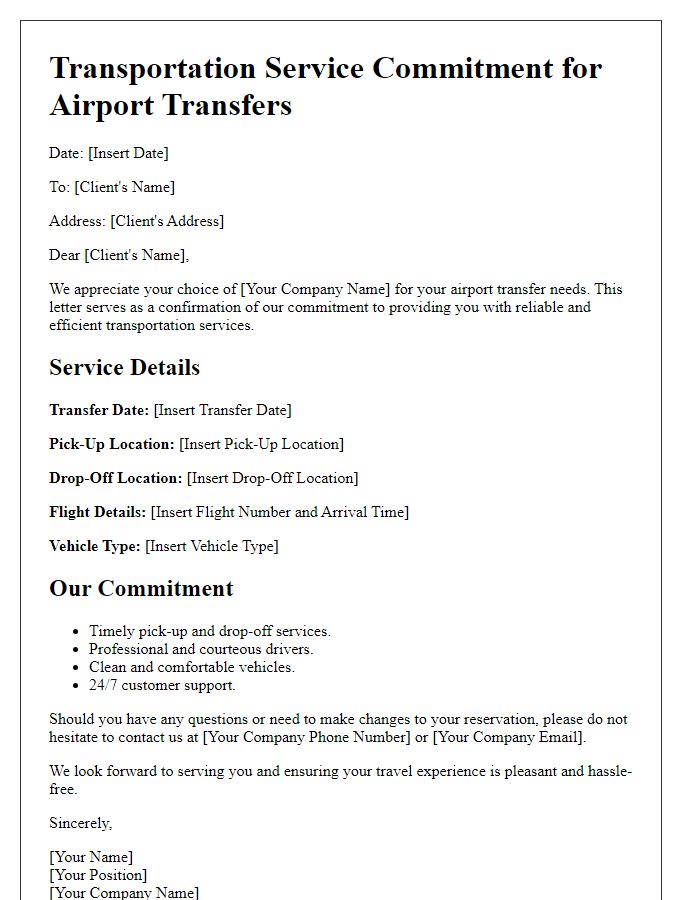
Letter template of transportation service document for emergency response.
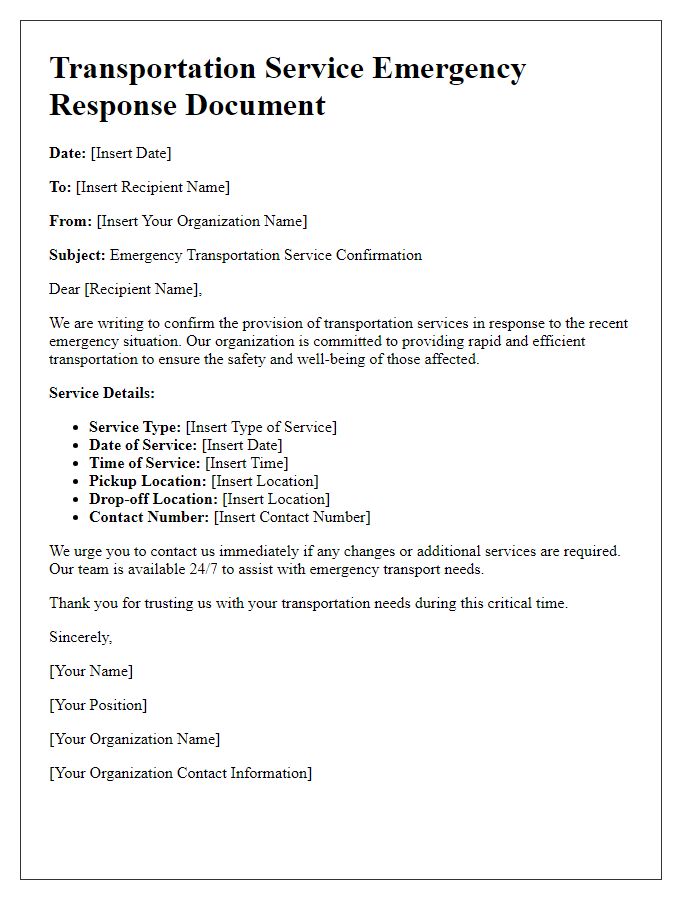

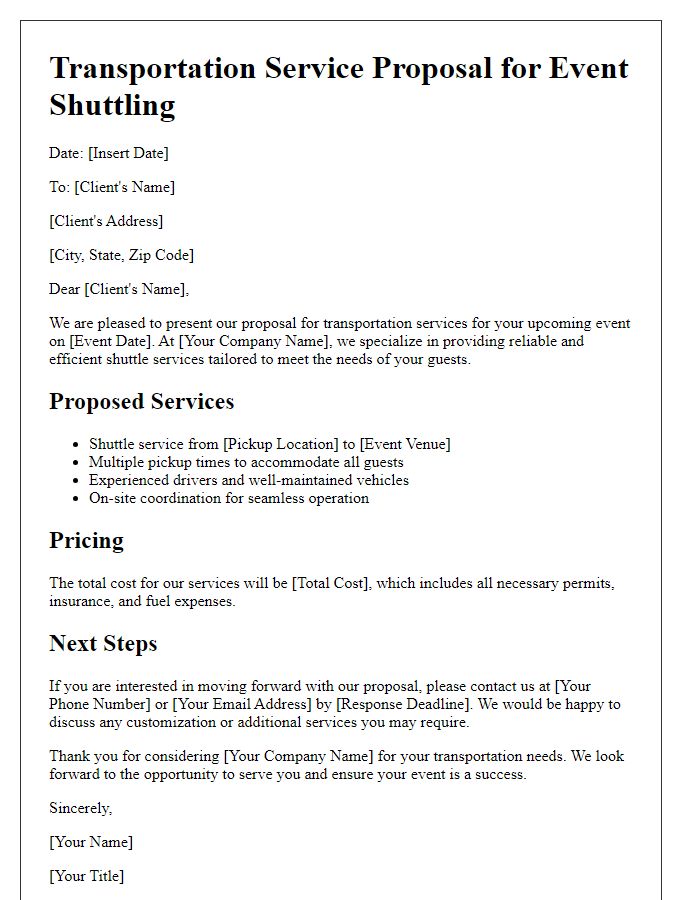
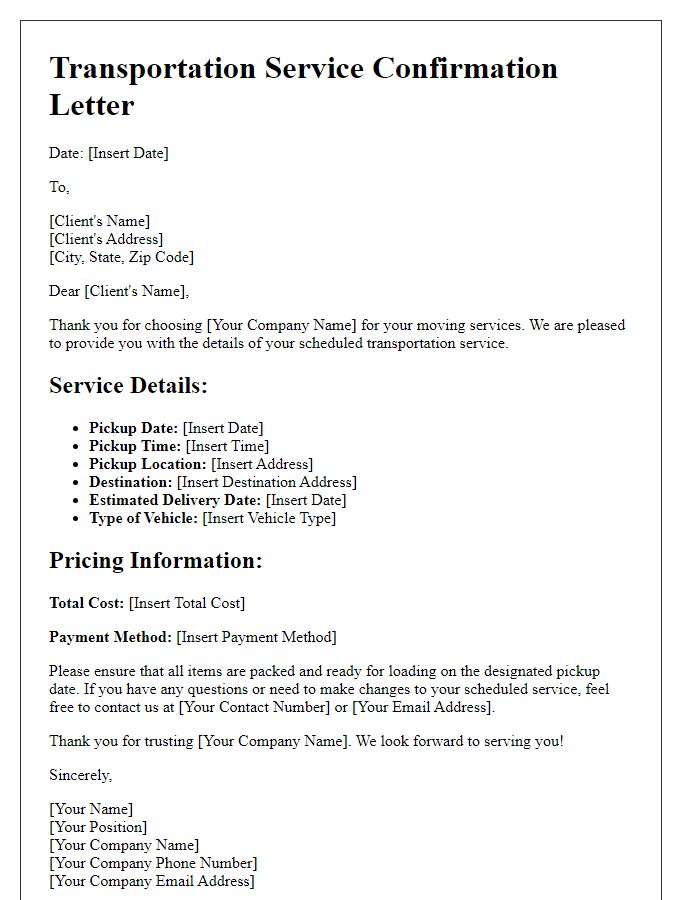
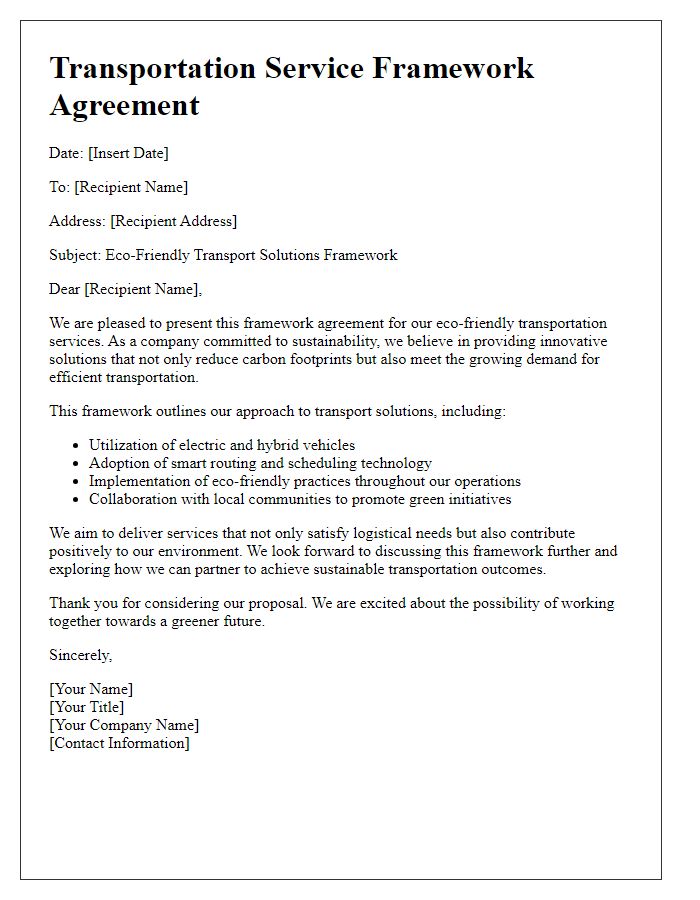


Comments